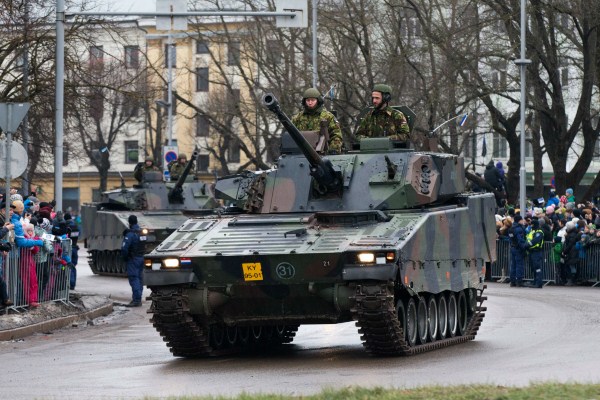The latest cease-fire between government forces and Russian-backed separatists in eastern Ukraine remains tenuous, but there are some signs it may hold for now. Kiev withdrew heavy artillery from the front today as the Russian ruble rallied for the first time since its collapse in December, prompted both by the cease-fire and by a rebound in global oil prices. While Russia’s economic outlook remains grim, with Western sanctions still in place, Russian President Vladimir Putin can claim some measure of victory after a year of interventions in Ukraine.
Meanwhile, to the north, the three Baltic states—Estonia, Latvia and Lithuania—are faced with the possibility that Russia might subject them to the same strategy as Ukraine. All three Baltics have significant Russian-speaking minorities concentrated near the Russian border and in their respective capitals. Russian-speakers make up between a quarter and a third of Latvia and Estonia, each of which borders the Russian mainland, and a smaller percentage of Lithuania, which borders the Russian exclave of Kaliningrad.
Defending the rights of Russian-speakers was Putin’s pretext for annexing Crimea and backing rebels in eastern Ukraine, and the Baltics have reason to fear they could be next. While the three former Soviet republics combined are only a fraction of the size of Ukraine, a Russian intervention in any of them would spark a far larger crisis: All three are members of NATO and the European Union, and the United States and other major Western powers are treaty-bound to come to their defense.

